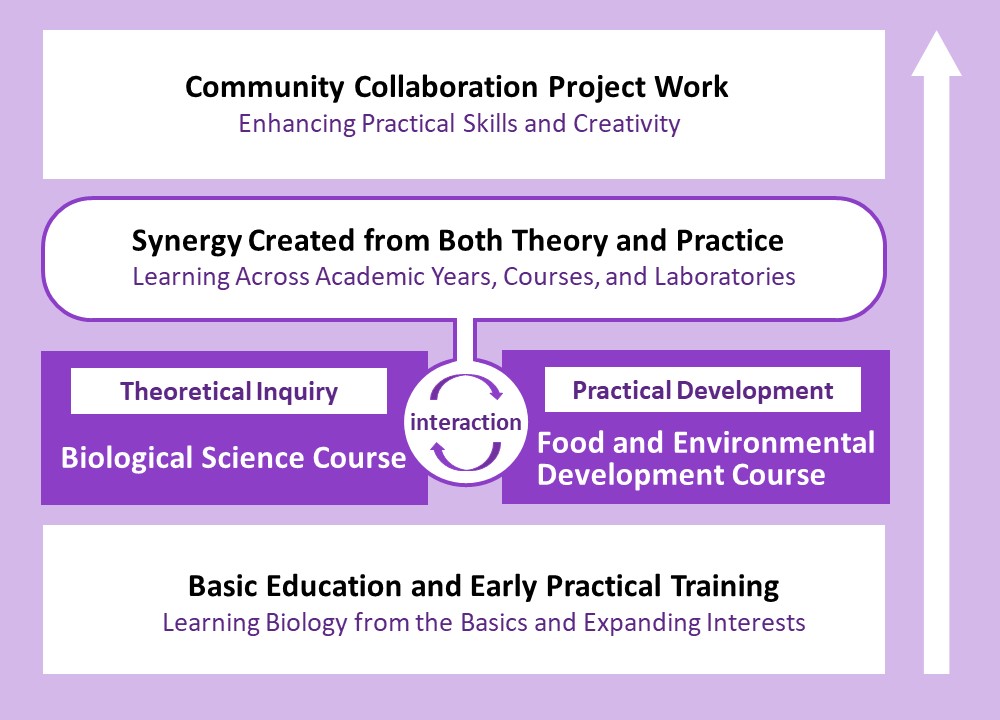Faculty of Science and Engineering, Department of Biological Science

Department Objectives
The world of living organisms is shaped by a vast array of individuals characterized by diversity and adaptability. In the Department of Biological Sciences, students study life on Earth—including animals, plants, and microorganisms—across a wide range of levels, from molecules and cells to entire ecosystems. Through this, they explore the essence of biological evolution and diversity, as well as the universality of life phenomena. Building on this foundational knowledge, the program aims to cultivate individuals equipped with the scientific understanding and practical skills necessary to address issues related to food, natural resources, and the environment, contributing to the creation of a sustainable society.
Key Features
・Building a Foundation in Biology and Expanding Your Interests
Even students who have not studied biology or chemistry in depth before admission can follow a step-by-step curriculum that builds understanding from the basics. Rather than focusing solely on theory, the program emphasizes hands-on learning through early practical training and experiments starting in the first year. These include field-based research activities such as observation, collection, and surveys.
Through these engaging experiences, students not only enjoy learning biology in a practical way but also broaden their interests and begin to explore research themes from their own unique perspectives.
・Deepening Expertise Through Two Specialized Courses
From the third year, students choose between two specialized courses based on their interests and aptitudes to further develop their expertise.
In the Biological Science Course, the focus is on fundamental biological research, including genome analysis, genetic engineering, and breeding techniques, as students explore the essential truths of life. In the Food and Environmental Development Course, students study fields such as floriculture, horticulture, food science, and fermentation and brewing. They take on the challenge of developing foods that enrich daily life, as well as creating high-quality fruits, vegetables, flowers, and cosmetic products derived from plants.
・Cultivating Practical Skills and Creative Thinking
Through project-based learning in collaboration with companies and local communities, students actively engage in joint research and product development. These experiences foster the practical skills and creativity necessary for solving real-world problems. The curriculum includes a flexible selection of courses that go beyond academic year, course, and laboratory boundaries. This allows students to approach their projects and research topics from multiple angles—both theoretical and practical—broadening their perspective and deepening their understanding.

